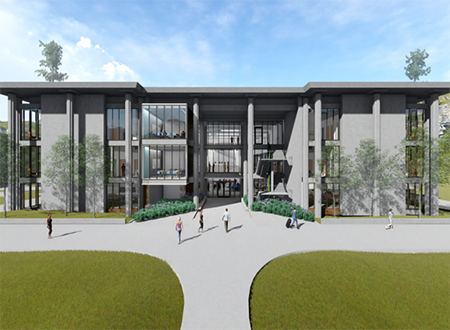LEED Buildings

LEED provides a framework for healthy, efficient, carbon and cost-saving green buildings. LEED certification is a globally recognized symbol of sustainability achievement, and it is backed by an entire industry of committed organizations and individuals paving the way for market transformation.
LEED-certified buildings save money, improve efficiency, lower carbon emissions and create healthier places for people. They are critical to addressing climate change and meeting ESG goals, enhancing resilience, and supporting more equitable communities. LEED categories can also contribute toward meeting the U.N.’s Sustainable Development Goals. Explore synergies between LEED and SDGs.
To achieve LEED certification, a project earns points by adhering to prerequisites and credits that address carbon, energy, water, waste, transportation, materials, health and indoor environmental quality. Projects go through a verification and review process by GBCI and are awarded points that correspond to a level of LEED certification: Certified (40-49 points), Silver (50-59 points), Gold (60-79 points) and Platinum (80+ points).
.

